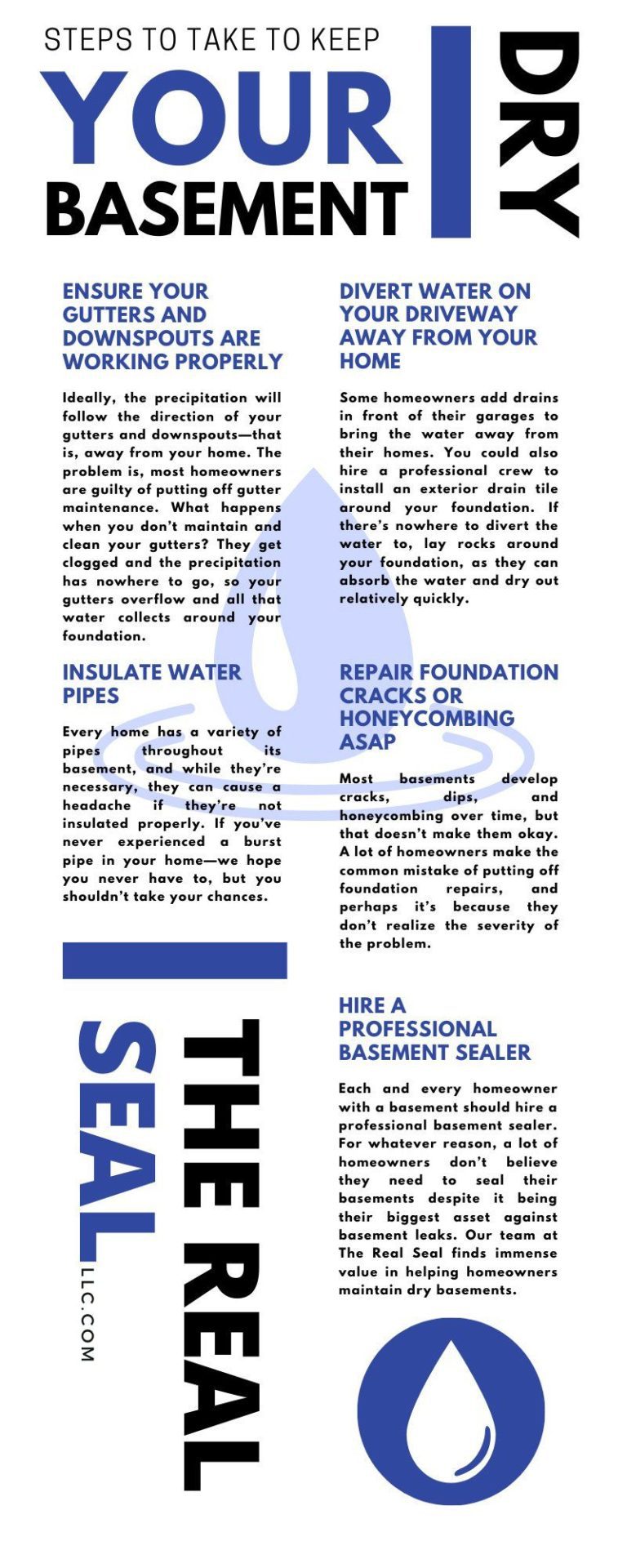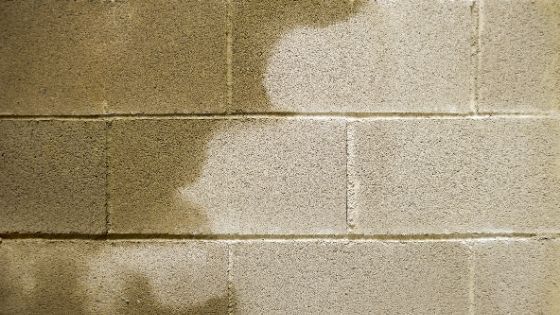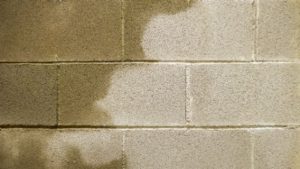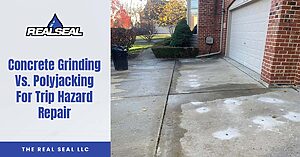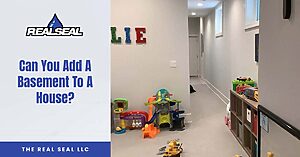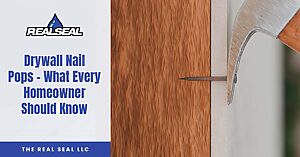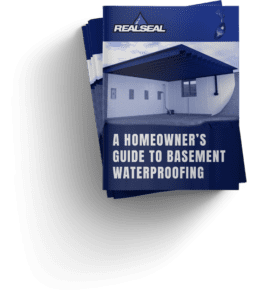As a homeowner, you’re always looking for ways to improve your home, whether that’s by rehabbing the kitchen or painting the walls. However, there are some really important improvements every homeowner should consider to maintain a livable home. If you have a basement, you probably know where we’re going with this. Water seepage, leaks, and foundation issues—all of these lead to a wet basement. Some people like to brush off the leaks since they’re usually minor at first, but if you don’t stop the leak, it’ll only get worse. Moreover, a wet basement can result in mold and mildew, which has major effects on your health over time. Additionally, prolonged seepage can lead to permanent foundation damage and a pest’s paradise.
With all that said, if you didn’t think you needed to keep your basement dry before, you probably do now. We made a list of steps to take to keep your basement dry; we encourage you to read on if you’d like to learn more.
Signs Of Moisture In Your Basement
Here are a few signs you have moisture in your basement.
- Mold growth
- Puddles
- Condensation
- Musty odors
- High humidity
- Wood rot
Ensure Your Gutters and Downspouts Are Working Properly
People often don’t realize the condition of their gutters and downspouts directly affects the condition of their foundation and basement. The reason is simple. Picture getting inclement weather, whatever that means by you; it could be heavy rains or snow that eventually melts. The precipitation of your choice has to go somewhere, right? Ideally, the precipitation will follow the direction of your gutters and downspouts—that is, away from your home. The problem is, most homeowners are guilty of putting off gutter maintenance. What happens when you don’t maintain and clean your gutters? They get clogged and the precipitation has nowhere to go, so your gutters overflow and all that water collects around your foundation. Over time, the more water that accumulates around your foundation, the more likely you are to experience foundation cracks and basement leaks.
Divert Water on Your Driveway Away from Your Home
Some driveways slope toward the home or basement, which can raise concerns of flooding or excess moisture. You probably can’t put your driveway in a different place, but you can divert the water elsewhere. Some homeowners add drains in front of their garages to bring the water away from their homes. You could also hire a professional crew to install an exterior drain tile around your foundation or lay a French drain in your grass to collect pooling rainwater.
Insulate Water Pipes
Every home has a variety of pipes throughout its basement, and while they’re necessary, they can cause a headache if they’re not insulated properly. If you’ve never experienced a burst pipe in your home—we hope you never have to, but you shouldn’t take your chances. Insulating your pipes might sound like a complicated job, but it’s not at all; plus, it’s a relatively cheap project. There are a few insulation options, but the most common are pipe-wrap or foam sleeves. You should insulate all your cold-water pipes in your basement.
Read more about – Why You Need To Waterproof Your Crawl Space?
Invest in a Dehumidifier
If you frequently experience condensation in your basement, you should invest in a dehumidifier. Condensation can be annoying as well as bothersome for your health. If you don’t reduce or eliminate the condensation, your basement can develop mold. When setting your humidity levels, take the current levels into consideration. A general rule of thumb is to set yours somewhere between 30 and 50 percent. Anything below 30 percent allows germs to thrive, but anything above 50 percent can allow mold to grow. You’ll also need to purchase the correct-size dehumidifier, as they’re not one-size-fits-all. Your basement’s square footage will determine what size dehumidifier you need.
Repair Foundation Cracks or Honeycombing ASAP
Most basements develop cracks, dips, and honeycombing over time, but that doesn’t make them okay. A lot of homeowners make the common mistake of putting off foundation repairs, and perhaps it’s because they don’t realize the severity of the problem. Let’s start with cracks. There are three different types of cracks—vertical, horizontal, and stair-step—each of which signals different issues. A vertical crack is a result of constant tension on the concrete. A horizontal crack is a sign of excessive water pressure; your foundation could collapse if the crack isn’t repaired. Finally, a stair-step crack is an indicator the foundation is settling irregularly.
Additionally, some basements will experience what’s called honeycombing. In short, honeycombing is a surface result of the concrete deteriorating. The problem with honeycombing is that it doesn’t look serious—but the concrete is deteriorating from the inside out. Unsurprisingly, deteriorating concrete raises a couple concerns: your foundation’s integrity and seepage points. In other words, if you’re trying to keep a dry basement, honeycombing and cracks are not the answer. You also need to make sure to call a professional to repair these issues, because general home improvement store fixes aren’t permanent.
Hire a Professional Basement Sealer
Each and every homeowner with a basement should hire a professional basement sealer. For whatever reason, a lot of homeowners don’t believe they need to seal their basements despite it being their biggest asset against basement leaks. Our team at The Real Seal finds immense value in helping homeowners maintain dry basements; we just happen to do it better than anyone in the Chicagoland area.
As you can see, the steps to take to keep your basement dry are relatively simple. Most of the steps don’t require much effort from you, with the exception of cleaning your gutters and plugging in a dehumidifier. Otherwise, a professional plumber or waterproofing company can handle the rest.
If you’re looking for basement waterproofing in Chicago, IL, look no further than The Real Seal; we always provide quality work that’ll las with the best warranties in the industry. We also have a permanent solution to foundation cracks and honeycombing. Moreover, if your driveway or foundation is working against your goals of having a dry basement, we can install an interior or exterior drain tile as well. In other words, The Real Seal should be your first call for basement and foundation issues, because we do it all. Give us a call if you have any questions or would like to request an appointment.
